Retinoid Products: 3 Tips for Using on Sensitive Skin

As a dermatologist, I know how powerful retinoid products are for fighting the signs of skin aging.
I've personally used retinoid products on my skin for more than 35 years.
Over that same time, I've also prescribed these products for thousands of patients and we've seen the results - the appearance of retinoid-treated skin barely ages! Being able to have this impact on my patient's skin is deeply satisfying for me.
Frankly, as I look back on my career after a year of battling breast cancer, it feels almost like a skin-care legacy that I've given my patients from my almost 35 years of practice. Now, my Retinol Night Cream gives everyone a great non-prescription retinoid option. You can get the retinoid benefits without a trip to the doctor's office. - Dermatologist Dr. Cynthia Bailey
My powerful medical-grade retinol cream is formulated to maximize retinoid benefits while minimizing skin retinoid irritation.
Retinol is less irritating than tretinoin while at the same time providing all the proven retinoid benefits to fight skin aging. This makes retinol an especially good retinoid choice for people with sensitive skin.
That said, adding any powerful retinoid product to your skin care routine always takes care, especially for people with sensitive skin.
My tips for adding Retin A or any 'real' retinoid product to your skin care routine are built from 30+ years of helping my patients do exactly that. Even the most sensitive complexions can typically tolerate a retinoid with when they follow these tips. I myself have exquisitely sensitive skin. I tested these tips on myself and have proven them time and time again on my sensitive skin patients. It's worth the effort to try adding a retinoid!
If you are using tretinoin, you will find many helpful tips in my guide: How to Apply Tretinoin Cream: A Guide to Demystifying Its Use
“It was my 38th birthday yesterday and the woman giving me a pedicure thought I was in my 20s! She couldn’t believe it. I credit it to your products…” Tracy A, Penngrove, CA
Dermatologist's Medical-Grade Retinol Anti-Wrinkle Night Cream is Now Available!
If you are interested in adding a retinoid to your anti-aging skin care routine, my Retinol Ultra-Intensive Anti-Wrinkle Night Cream is the ideal choice - it's a powerful, professional-level, pharmaceutical-grade retinol and a real retinol game-changer.
Dermatologist's tips for how to start using retinol.
Here are my tips on how I counsel my sensitive skin patients for success adding a retinoid into their skin care routine:
Tip #1: Always start with lower levels of retinol products and work up
Your skin needs time to adjust to retinoid therapy. It's just like lifting weights, you don’t start with the biggest barbells, you start with smaller weights and work up to the big ones. My Retinol Ultra-Intensive Anti-Wrinkle Night Cream is made with the highest strength (a full 1%) of any retinol product allowed and it's easy to dilute it down and work up slowly.
Start strong medical-grade retinol by diluting it if you have sensitive skin!
- Yep, you can mix a half pump of this with a half pump of your favorite moisturizer or my Daily Moisturizing Face Cream in your palm to reduce the concentration in half.
- Begin by applying every third night and gradually increase to nightly.
- Once your skin has adjusted to retinol, gradually add less of the moisturizer until you are using the full 1% Retinol Night Cream undiluted.
I always tell my patients to "go low and slow" when you start any retinoid and that includes my Retinol Night Cream. You'll get there, just be patient!
Tip #2: Avoid all other irritating products while your skin is adjusting to retinol
There is always an initial break in period called “retinoid dermatitis” when you start using a retinoid.
- Retinoid dermatitis is a subtle irritation that develops in the first weeks to months of initiating a retinoid product into your skin care routine.
- This dermatitis makes your skin more porous. If you apply an irritating product (such as an AHA, BHA, vitamin C, acne product and/or harsh soap) it will get into your skin more readily to sting and irritate. This additional irritation will make it harder to get through the retinoid break-in phase.
When I start someone on a retinoid product, I always recommend they use only a trusted non-irritating cleanser on their skin. My favorite is my Extremely Gentle Foaming Facial Cleanser. This is the main cleanser that I use on my facial skin. It is a pH balanced, sulfate-free cleanser ideal for sensitive skin - like mine.
In my dermatology practice, once a patient's complexion has adjusted to retinol and the retinoid dermatitis has subsided, then it is ok to slowly add back potentially irritating products one at a time.
- If their skin gets irritated anyway, we skip several nights or a week on the retinoid and the irritating product until their skin has settled down.
- Then we resume the nightly retinoid product but applied less frequently at first. We also apply the irritating product less frequently. We again work up to every night as tolerated. Eventually we usually get there.
Tip #3: Use a product with high concentration green tea antioxidants, a good moisturizer, and a zinc oxide sunscreen every day when using a retinoid.
 Help support your skin's barrier strength and reduce inflammation with the other skin care products that you use. This is key to adjusting to a retinoid.
Help support your skin's barrier strength and reduce inflammation with the other skin care products that you use. This is key to adjusting to a retinoid.
I've found that the 3 key products to help people with sensitive skin tolerate retinoid therapy in my dermatology practice are:
1) A high concentration green tea product to fight retinoid irritation.
My Green Tea Antioxidant Skin Therapy applied every morning after washing has helped many of my sensitive skin patients tolerate retinoids. In fact, it's a game changer for sensitive skin.
This Green Tea Cream is made in an FDA regulated lab and has pharmaceutical grade active green tea EGCG antioxidants (the most important antioxidant polyphenols in green tea) at a concentration equivalent of those found in 500 cups of brewed green tea per ounce of cream! You can't make this at home or find the equivalent in any other product. It's unique - and popular for good reason. I've used it every day for years and my complexion complains if I run out.
2) A high-tech moisturizer with key barrier replenishing ingredients.
You want plant based squalane and ceramides in your moisturizer if you are using a retinoid. Glycerin will also help hydrate skin without oil and my Daily Moisturizing Face Cream blends these great ingredients into the formulation.
3) A SPF 30 or higher mineral zinc oxide sunscreen worn every day without fail!
Layer sunscreen on top of your moisturizer. Mineral zinc oxide sunscreens are better tolerated by sensitive skin than chemical sunscreens. Click here to see the sunscreen products I trust and that I recommend for my patients include.
Retinoids are the most powerful skin care product other than broad spectrum sunscreen that you can use to keep your skin looking timelessly youthful. - Dermatologist Dr. Cynthia Bailey
Retinoids are tricky though, especially if you have sensitive skin.
Get everything I recommend to support retinol and retinoid use (including for my Retin A patients) in my Complete Skin Care Kit
I'm proud to offer a 'real' and powerful retinol for my customers. My Retinol Night Cream is the ideal non-prescription retinoid for everyone who wants retinoid benefits. It's doubly ideal for people with sensitive skin and for those who have not tolerated other retinoid products in the past.
Retinoid Product References
Improvement of Naturally Aged Skin With Vitamin A (Retinol), Reza Kafi, MD; Heh Shin R. Kwak, MD, Arch Dermatol. 2007;143:606-612
Improvement of photoaged facial skin in middle-aged Japanese females by topical retinol (vitamin A alcohol): a vehicle-controlled, double-blind study. Kikuchi K, Suetake T, Kumasaka N, Tagami H, J Dermatolog Treat. 2009;20(5):276-81
Choosing Topical Retinoids for Aging Skin, Sachs, DL, Dermatology Focus, Summer 2013 Vol 32 No 2 page 4
Application of Retinol to Human Skin In Vivo Induces Epidermal Hyperplasia and Cellular Retinoid Binding Proteins Characteristic of Retinoic Acid but Without Measurable Retinoic Acid Levels or Irritation, Sewon Kang, Elizabeth A. Duell, et. al., J Invest Dermatol 105:549-556, 1995
Vitamin A Antagonizes Decreased Cell Growth and Elevated Collagen-Degrading Matrix Metalloproteinases and Stimulates Collagen Accumulation in Naturally Aged Human Skin, James Varani, Roscoe L Warner, Mehrnaz Gharaee-Kermani, et. al., J Invest Dermatol (2000) 114, 480–486;
Topical Tretinoin for Photoaged Skin: a Double-blind Vehicle-controlled Study, Weiss JS, Ellis CN, et. al., JAMA. 1988, 259: 527-532
Tazarotene Cream for the Treatment of Facial Photo Damage: a Multicenter, Investigator-Masked, Randomized, Vehicle-Controlled, Parallel Comparison of Tazarotene 0.01%, 0.025%, 0.05%, and 0.1% Creams and Tretinoin 0.05% Emollient Cream Applied Once-Daily for 24 Weeks. Kang S, Leyden JJ, Lowe NJ, et al., Arch Dermatol. 2001;137:1597-1604.
Mechanisms of Photoaging and Chronological Skin Aging, Gary J. Fisher, PhD; Sewon Kang, MD; et. al., Arch Dermatol. 2002;138(11):1462-1470
Photo attribution: Thanks and gratitude to © Mina Chapman/Corbis and © Inti St Clair/Blend Images/Corbis

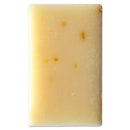
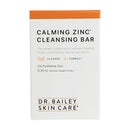
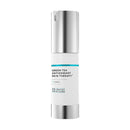
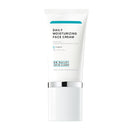
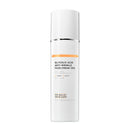
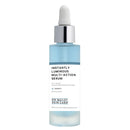
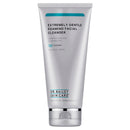
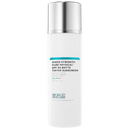
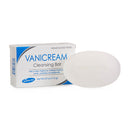
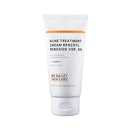
 Frankly, as I look back on my career after a year of battling breast cancer, it feels almost like a skin-care legacy that I've given my patients from my almost 35 years of practice. Now, my Retinol Night Cream gives everyone a great non-prescription retinoid option. You can get the retinoid benefits without a trip to the doctor's office. - Dermatologist Dr. Cynthia Bailey
Frankly, as I look back on my career after a year of battling breast cancer, it feels almost like a skin-care legacy that I've given my patients from my almost 35 years of practice. Now, my Retinol Night Cream gives everyone a great non-prescription retinoid option. You can get the retinoid benefits without a trip to the doctor's office. - Dermatologist Dr. Cynthia Bailey



